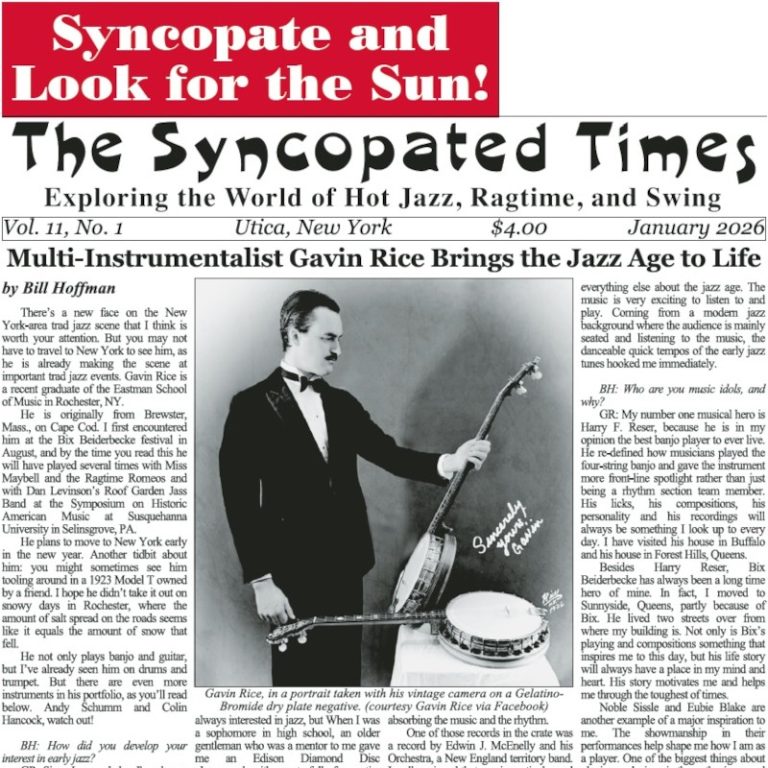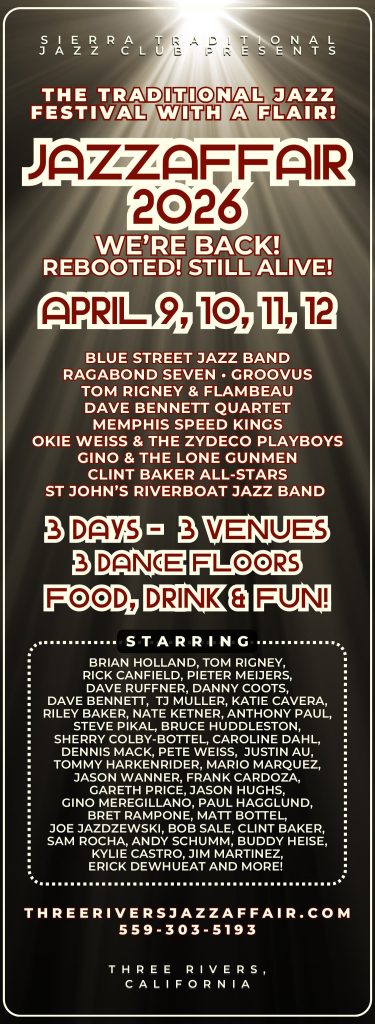Odell Rand was born in 1905 in New Orleans; he died on 22 June 1960 in Chicago, Ill.
Robert Stendhal recalls: “I saw Odell Rand in a band with Jasper Taylor and Natty Dominique. I doubt he was 5 feet tall, more like 4 feet 8 inches (1.42 m).” Quoted in Hillman. C., Middleton, R., & Chaigne, M. Chicago Swingers. Cygnet Publications 2010. Stendhal’s visit was probably in the 1940s and perhaps the photograph of Natty Dominique’s Creole Band is from the same source.
At his size, he would not have been able to play a “normal” Bb clarinet. He chose to play an Eb model. From the few published photographs of him, he played an Albert (simple, Mueller or German) system instrument. On most of his recordings he kept to the low (chalumeau) register particularly when accompanying singers but for solos he occasionally played in the upper (clarion) range. He had a very reedy tone which he succeeded in maintaining even in the upper register; this is quite a feat because the upper range of the Eb clarinet tends to be loud and shrill. Very few players of Eb clarinets attempt to play in the low register.
Most of his recordings were made with the Harlem Hamfats (199 tracks). The same musicians also recorded as The Palooka Washboard Band (4 tracks). The Harlem Hamfats was a band based in Chicago, not in Harlem. J. Mayo Williams was head of the “race records” for Decca. He assembled t
You've read three articles this month! That makes you one of a rare breed, the true jazz fan!
The Syncopated Times is a monthly publication covering traditional jazz, ragtime and swing. We have the best historic content anywhere, and are the only American publication covering artists and bands currently playing Hot Jazz, Vintage Swing, or Ragtime. Our writers are legends themselves, paid to bring you the best coverage possible. Advertising will never be enough to keep these stories coming, we need your SUBSCRIPTION. Get unlimited access for $30 a year or $50 for two.
Not ready to pay for jazz yet? Register a Free Account for two weeks of unlimited access without nags or pop ups.
Already Registered? Log In
If you shouldn't be seeing this because you already logged in try refreshing the page.




